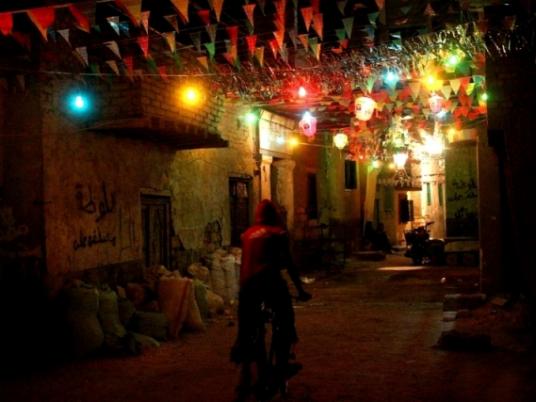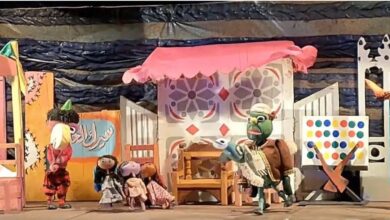
"When people are fasting, they feel like they want to eat the whole world,” says Ayman al-Gameel, who owns a butcher shop in Ismailia Square called al-Gameel Poultry Butcher. Four large cow carcasses careen off hooks — certainly not poultry, but nonetheless an important part of Gameel’s product.
During Ramadan, his sales go up 100 to 150 percent. He even sets up a station on the street to sell meat hot off the grill for iftar. Meat and chicken make up an important part of the iftar menu.
“People need their protein after they fast,” Gameel says.
Just down the road, a dried fruit and nuts shop has also exploded well beyond its normal proportions, decked out with colorful tents and lights for the festive season of Ramadan. Ibrahim Khamis sells dried figs, apricots, dates and apricot sheets on the sidewalk in front of his candy and nut shop.
He sets up this little extension 10 days before Ramadan and keeps it up until all these special products sell out, which usually lasts only about five days into the holy month. Then he folds up the tent so as not to obstruct the sidewalk.
Sales of sunflower and other seeds drop quite predictably during Ramadan as people aren't munching during the day. But peanut sales go up because people serve the peanuts before and after iftar to their visitors.
Sales this year are low, however, and Khamis doesn’t know why. Last year, the first Ramadan after the 25 January revolution, sales were average.
“Usually I have customers crowding the shop and sidewalk, but this year I just have two or three at a time,” Khamis says.
Khamis says “al-hamdulillah,” with a whisper of desperation in his voice. He hopes things will be better soon — Ramadan is usually the time when all food-related shops make large profits.




